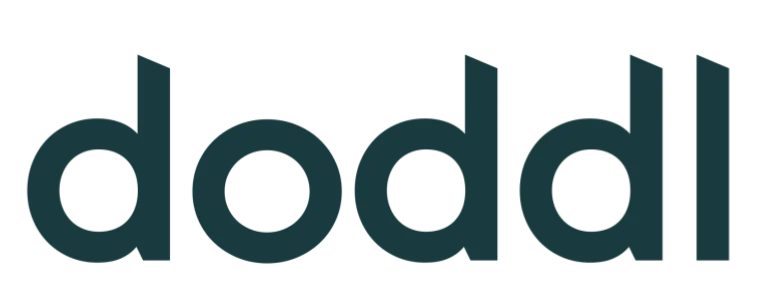Planning on buying a home in 2024 – these are the figures you need to know
New year is a time for new resolutions and is also the busiest time for enquiries from mortgage applicants.
Last year saw record numbers of first time buyers securing mortgage approval with over 30,000 approvals issued and there is no indications that 2024 wont bring the same demand.
Interest rates, mortgage lending rules, deposit requirements and additional costs to purchase a home are all figures that very quickly form part of a first time buyers budget and can be daunting.
Understanding how much you can borrow and how much you will have to repay are the starting points for any would be purchaser.
How much can I borrow?
Your budget for home purchase is generally set based on the mortgage amount you are eligible for plus your deposit, any state supports such as the help to buy and any gifts you may be lucky enough to be in receipt of.
The Central Bank of Ireland set lending rules as 4 times allowable income for first time buyers and 3.5 times for second and subsequent buyers.
However not all lenders will allow you to borrow the same amount. Each lender has their own underwriting policy which determines the amount they will lend.
Variable income in particular is treated differently among lenders with some lenders allowing 20pc of variable income to be taken into account, others up to 100pc.
Exceptions are also available from some lenders to bring mortgage eligibility from 4 times under the Central Bank rules to up to 4.75 times allowable income.
Understanding how much you can borrow will often determine what and where you can buy so is really one of the most important figures to understand.
Mortgage Interest rates and how much will I repayments
Interest rates increased through 2023 and it is expected that we will see a levelling off of rates into 2024.
Higher interest rates increase monthly repayments and can also have an impact on the amount you can borrow as it impacts.
Over 94pc of new mortgages are drawn down on fixed rates and the most popular rates are 3 to 5 year fixed rates.
If we take a very standard 5 year fixed rate of 4.75pc with mortgage term of 30 years for every €100,000 you borrow repayments would be €522 per month.
The rate you get is always the rate at date of draw down and rates differ greatly between lenders with the lowest rate on the market at 3.65pc and the highest at over 7pc.
Building your mortgage deposit and proving affordability
A minimum 10pc of purchase price is required for all home buyers. Deposits can be made up of savings, gifts and the help to buy scheme which is a scheme available to first time buyers purchasing a new build home.
Saving a 10pc deposit in a rising property market is extremely challenging and as such it can take years for mortgage savers to be in a position where they can push on to purchase.
There is no silver bullet to saving, it’s a tough grind but there are certain basic rules as to how a lender would want to see savings demonstrated for a mortgage application to be successful.
When looking at mortgage eligibility a bank will always want to see if an applicant has demonstrated clear evidence of repayment capacity.
The bank will take the proposed mortgage and add 2pc to the actual rate to, stress test, the mortgage applicants ability to repay the mortgage if rates increased further.
As a rule of thumb based on current interest rates for every €100,000 that you may want to borrow you should show repayment capacity of €600 per month. As such taking an average mortgage of €300,000, repayment capacity of €1,800 per month would need to be proven in each of the six months immediately preceding application.
Repayment capacity can be demonstrated by monthly savings and rent or mortgage paid in the case of a second time buyer.
If clear evidence of repayment capacity is not proven then an application will be declined so demonstrating that you can afford the proposed mortgage sought is essential.
Additional costs in taking out a mortgage
Reaching the 10pc deposit requirement is a huge achievement however some of the ‘hidden’ costs of home purchase can be a sting in the tail.
Stamp duty of 1pc of the purchase price is applied to all homes up to €1m and 2pc on the excess over €1m. As such a house valued at €400,000 would mean €4,000 stamp duty amount due on purchase.
If you purchase a new home then Stamp Duty is not charged on the VAT element of the cost of the home so it is slightly less than 1pc for new builds.
Legal costs are payable for conveyancing work carried out by your appointed solicitor. Conveyancing is the transfer of legal title, ownership, from one person to another. Professional fee plus registry and search fees mean that you should budget approx. €3,000 for legal costs.
Two reports are generally undertaken when purchasing a home, these are a valuation report and structural survey.
A valuation is required by all mortgage lenders to confirm the value of a home at time of purchase, the valuer will inspect the home and give an opinion on value referencing comparable properties sold in the area.
A structural survey is a carried out to assess the structural integrity of a property. In most cases such a report is for the home buyers purposes only and is really important for due diligence given the size and nature of the transaction of home purchase.
A valuation will generally be carried out by a valuer from a banks panel, a structural survey should be carried out by a professional such as an engineer, architect or structural surveyor.
Cost of survey is dependent on the size and condition of the property but budget €500, valuation report is in general c. €200.
In order to ensure all transaction costs to purchase are covered it would be prudent to have a further 2pc of the expected purchase price in savings.
There is alot in the above but dont worry, our advisors are on hand to help you through every step. You dont need to know everything about mortgages because we do and we are here to help, Start today -> Lets get going!




